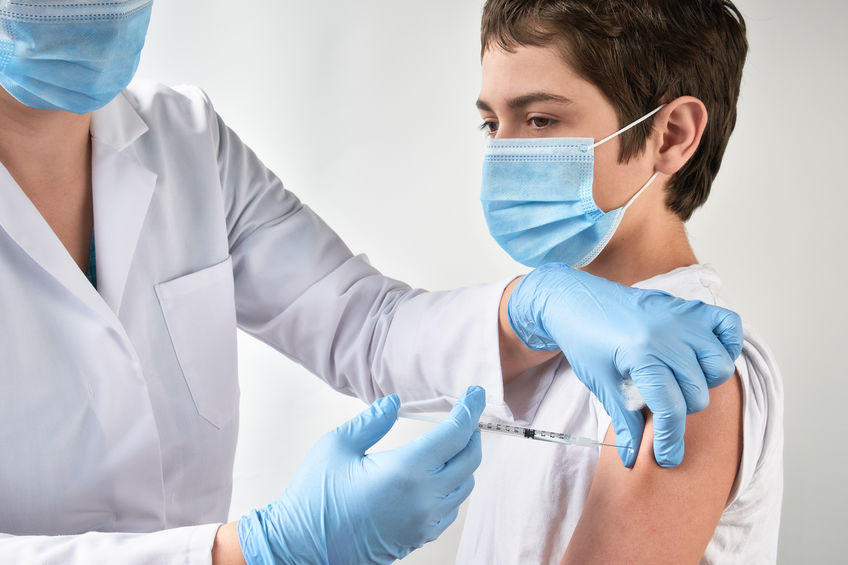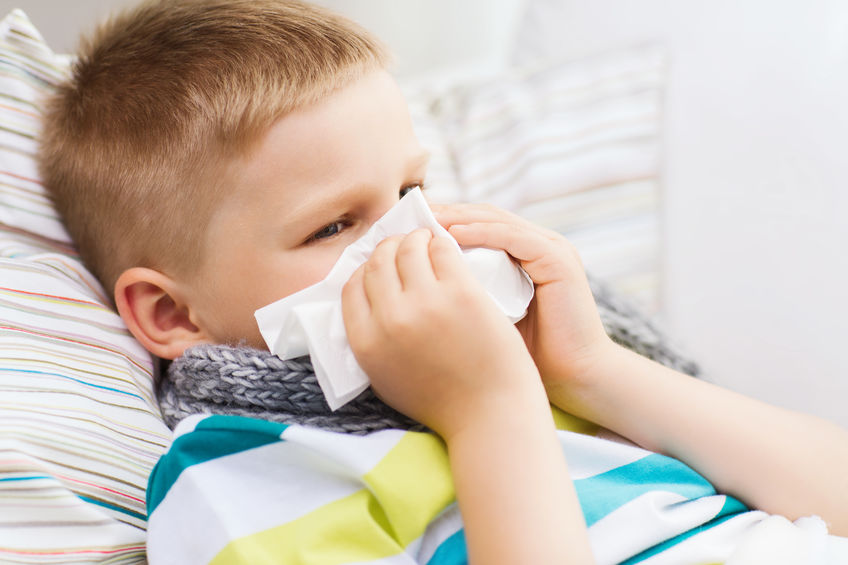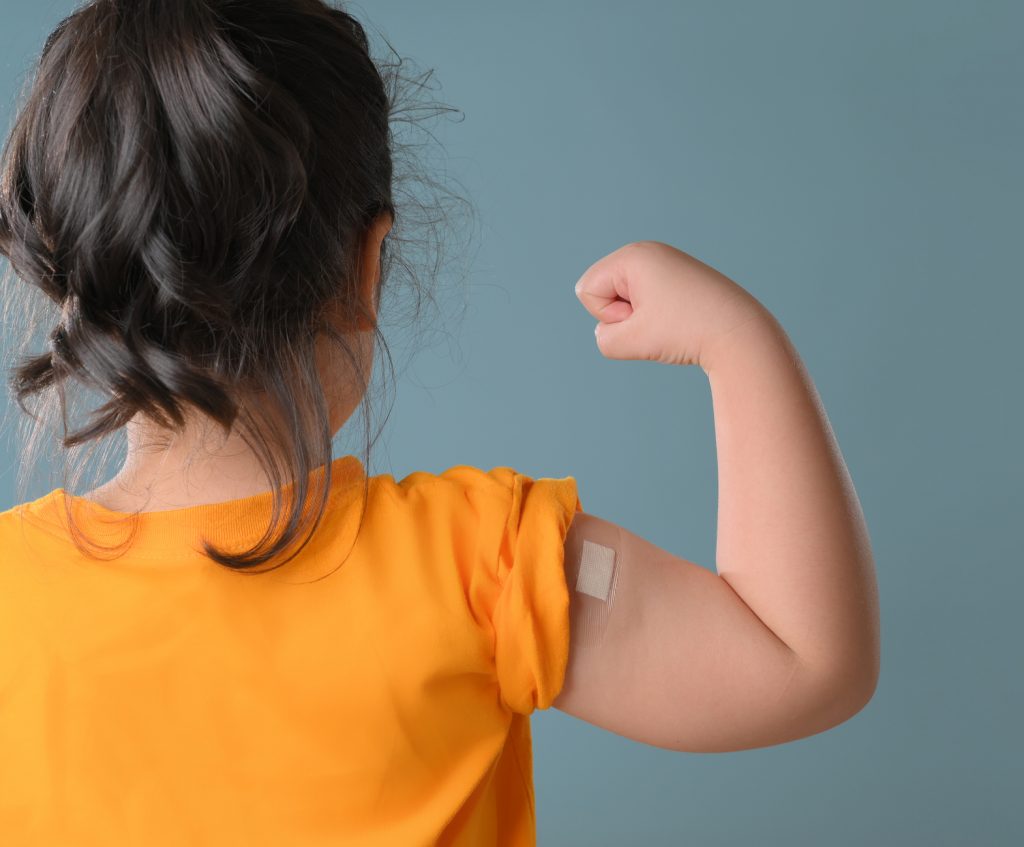On May 10, 2021, parents and teenagers across the country celebrated the good news: Adolescents and teens ages 12 and over were now eligible to receive the Pfizer/BioNTech COVID-19 vaccine.
After a clinical trial showed the vaccine was safe and 100% effective in adolescents, Pfizer’s emergency use authorization — which originally authorized the vaccine for those ages 16 and over — was expanded to include children ages 12 to 15.
With older children eligible for the vaccine, and with younger children’s eligibility on the horizon, it’s time for a vaccine update.
Here is a look at where we are with…
…Vaccines for Adolescents from Other Manufacturers
The vaccines from Moderna and Johnson & Johnson are still only available for adults age 18 and older.
However, it looks like Moderna may be following closely on Pfizer’s heels.
On May 25, Moderna announced that according to results of a clinical trial, their vaccine is 100% effective at preventing illness and does not pose any significant safety concerns. Moderna is expected to submit the results for review — along with a request for authorization — to the Food and Drug Administration (FDA) in early June.
Johnson & Johnson might not be too far behind — their ongoing clinical trial is now enrolling participants ages 12 to 17.
…Getting Younger Kids Vaccinated
Pfizer and Moderna are both testing their vaccines in children as young as 6 months old. Johnson & Johnson has stated that they plan to test their vaccine in young children, including newborns.
Dr. Anthony Fauci — Director of the U.S. National Institute of Allergy and Infectious Diseases (NIAID) and the chief medical advisor to the president — predicts that school-age children will be able to start getting vaccinated this fall (2021) or early 2022.
That does mean that young children will have to wait a little longer to get vaccinated. Fortunately, severe or life-threatening cases of COVID-19 are rare in this age group. (Although they are possible, which is why children still need to use preventive measures like wearing masks).
…Herd Immunity
Herd immunity is when a big enough percentage of the population becomes immune to a disease — either through a vaccine or previous exposure to the disease — that the disease no longer spreads.
Vaccinating the population appears to be the best way to reach herd immunity for COVID-19. While it’s not yet known what percentage of the population has to be vaccinated to reach herd immunity, the experts estimate that it will be somewhere between 70% and 85%.
We’re making significant progress, but we’ve still got a ways to go before we hit that 70 to 85%.
As of June 29, 2021, more than 154 million Americans — nearly 47% of the population — are fully vaccinated (two weeks after their second dose of the Pfizer or Moderna vaccines, or two weeks after the single dose Johnson & Johnson vaccine). More than half of the population is at least partially vaccinated.
COVID-19 Vaccines Work
As more and more people get vaccinated, we’re seeing proof that the vaccines work: Cases and deaths are at the lowest they’ve been in nearly a year.
…Spreading COVID-19 When Vaccinated
No vaccine is 100% effective. While rare, it is still possible to get an infection after being vaccinated (called a “breakthrough infection”) and to spread it to others.
There is some good news about breakthrough infections:
- Between January and April 2021, 101 million people in the US had been fully vaccinated — and only 0.01% had breakthrough cases.
- In most cases, they are not severe. All three vaccines authorized in the US are very effective at preventing severe disease, hospitalization, and death.
- There is some evidence that if a person has COVID-19, they may be less contagious if they are vaccinated.
That all being said — severe and life-threatening cases, and passing COVID-19 onto others, can happen. And since we have not reached herd immunity yet, there are still plenty of people who are unvaccinated, do not have protection against the virus, and are counting on others to still be careful.
…Variants and Booster Shots
There has been a lot of buzz about variants (mutations, or changes, in a virus), and whether or not the vaccines will be effective against current and future variants.
There have also been concerns that the effectiveness of the vaccines may wane over time.
Booster shots — additional doses of a vaccine to boost your immunity — could potentially address both of these concerns. We still don’t know if we will definitely need booster shots, but infectious disease experts have been warning Americans to prepare for the possibility.
If we do need booster shots, we also don’t know the schedule. We may need them every year, like the flu shot. We may need them every 10 years, like tetanus shots.
What we do know is that no matter what, children’s needs will be carefully considered if and when booster shot recommendations are made.
As always, feel free to contact your child’s pediatrician if you have any questions about the vaccine. The Children’s team is here for you — and we’re ready to help you and your child move a step closer toward returning to normalcy.
To schedule a vaccination appointment, call your Children’s Physicians pediatrician’s office or call 402-955-SHOT from 8:30 a.m. to 4:30 p.m.



